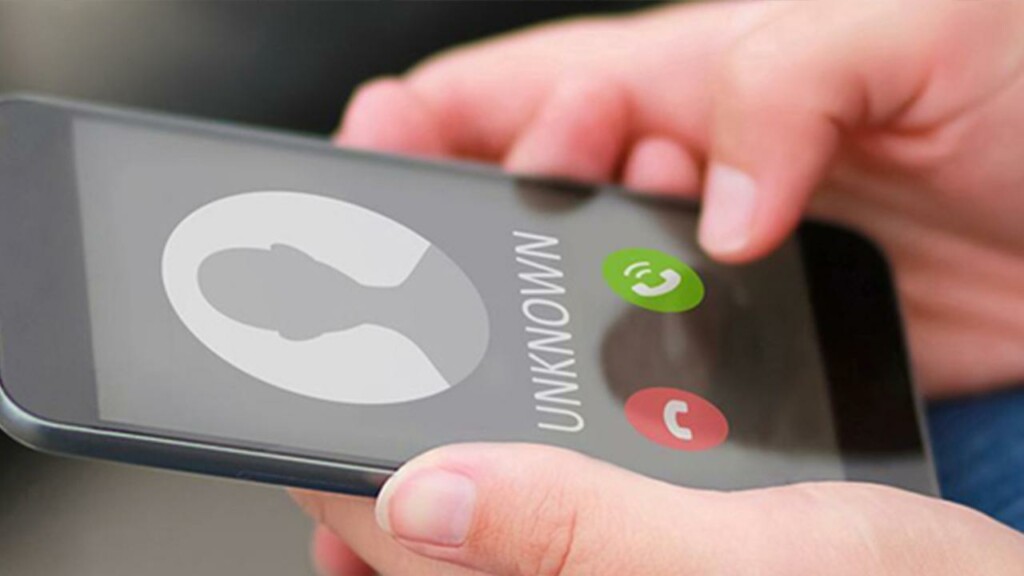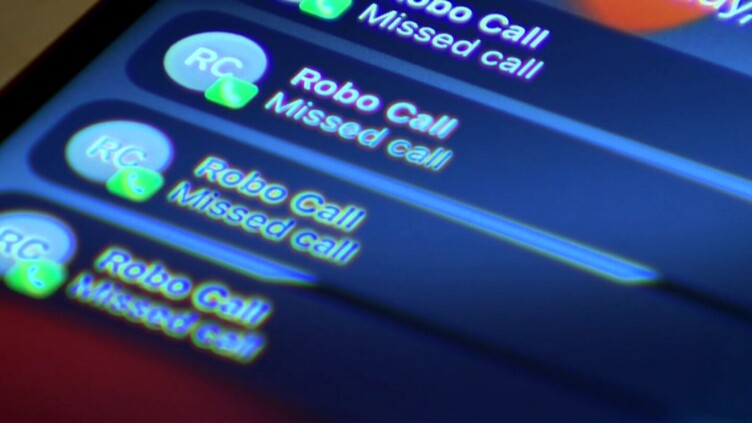FCC Issues Historic $300 Million Fine Against The Largest Robocalling Scam It Has Ever Investigated
By Federal Communications Commission & SCARS Editorial Team
U.S. Federal Communications Commission (FCC) Imposes Record Penalty Against Transnational Illegal Robocalling Operation
Robocalling Scammers Who Placed Five Billion Auto Warranty Robocalls Fined Nearly $300 Million for Robocall and Spoofing Violations
The Federal Communications Commission today issued a record-breaking $299,997,000 fine for auto warranty scam robocalling made by the largest illegal robocall operation the agency has ever investigated. An international network of companies violated federal statutes and the Commission’s regulations when they executed a scheme to make more than five billion robocalls to more than 500 million phone numbers during a three-month span in 2021, including violating federal spoofing laws by using more than one million different caller ID numbers in an attempt to disguise the true origin of the robocalls and trick victims into answering the phone.
According to CNN:
The globe-spanning illegal robocalling operation violated US telecom laws by making more than five billion robocalls to more than half a billion phone numbers over the course of just three months in 2021, the FCC said in a release Wednesday.
But the robocalling campaign had been in existence for even longer, the FCC added. Using a multitude of shell companies, aliases and fly-by-night phone providers allegedly under their control, the people behind the network — which CNN has previously reported on — had sought to dupe unwitting consumers into buying shoddy service contracts for their vehicles since 2018.
The FCC Action
The robocalling enterprise violated a multitude of robocall prohibitions by making pre-recorded voice calls to mobile phones without prior express consent, placing telemarketing calls without written consent, dialing numbers included on the National Do Not Call Registry, failing to identify the caller at the start of the message, and failing to provide a call-back number that allowed consumers to opt out of future calls. The calls also violated spoofing laws by using misleading caller ID to disguise the enterprise’s role and prompt consumers to answer.
“We take seriously our responsibility to protect consumers and the integrity of U.S. communications networks from the onslaught of these types of pernicious calls,” said FCC Enforcement Bureau Chief Loyaan A. Egal. “I want to thank the Enforcement Bureau’s Telecommunications Consumers Division for its groundbreaking work on this case, and we will continue to work with our federal and state partners to hold these entities and others engaged in similar conduct accountable.”
Since at least 2018, this robocalling enterprise operated a complex scheme designed to facilitate the sale of vehicle service contracts under the false and misleading claim of selling auto warranties. Two of the central players of the operation, Roy M. Cox and Aaron Michael Jones, were under lifetime bans against making telemarketing calls following lawsuits by the Federal Trade Commission and State of Texas. The multi-national enterprise did business as Sumco Panama, Virtual Telecom, Davis Telecom, Geist Telecom, Fugle Telecom, Tech Direct, Mobi Telecom, and Posting Express.
Last year, to stop this then-ongoing telemarketing robocalling campaign in its tracks, the FCC directed all U.S.-based voice service providers to cease carrying traffic associated with certain members of the enterprise. As a result, these illegal auto warranty robocalls dropped by 99%. That enforcement action was taken in coordination with the Ohio Attorney General’s Office, which brought a lawsuit under the Telephone Consumer Protection Act against several entities and individuals associated with the enterprise. The Commission also proposed a fine and offered the parties a chance to respond, which they did not do, resulting in today’s unprecedented fine. Should the parties not pay the fine promptly, this matter will be referred to the U.S. Department of Justice for collection.
The FCC’s Robocall Response Team today also announced new robocall investigation partnerships with the Attorneys General of Hawaii and New Mexico. Forty-six states and the District of Columbia and Guam have now signed Memoranda of Understanding to join with the FCC’s Enforcement Bureau to share evidence, coordinate investigations, pool enforcement resources, and work together to combat illegal robocalling campaigns and protect American consumers from scams.
Resources:
More:
- FCC Forfiture Order PDF (fcc.gov)
- FCC issues historic $300 million fine against the largest robocall scam it has ever investigated | CNN Business
- Robocall Refunds From The FTC & State Of Florida $540,000 (scamsnow.com)
- Illegal Robocallers – People Hate Them (scamsnow.com)
- Robocalls and Text Scams – How To Stop Them – A SCARS Guide (romancescamsnow.com)
- Caller ID Spoofing (romancescamsnow.com)
More ScamsNOW.com Articles
-/ 30 /-
What do you think about this?
Please share your thoughts in a comment below!
SCARS LINKS: AgainstScams.org RomanceScamsNOW.com ContraEstafas.org ScammerPhotos.com Anyscam.com ScamsNOW.com
reporting.AgainstScams.org support.AgainstScams.org membership.AgainstScams.org donate.AgainstScams.org shop.AgainstScams.org
youtube.AgainstScams.org linkedin.AgainstScams.org facebook.AgainstScams.org
Important Information for New Scam Victims
- Please visit www.ScamVictimsSupport.org – a SCARS Website for New Scam Victims & Sextortion Victims.
- SCARS Institute now offers its free, safe, and private Scam Survivor’s Support Community at www.SCARScommunity.org – this is not on a social media platform, it is our own safe & secure platform created by the SCARS Institute especially for scam victims & survivors.
- SCARS Institute now offers a free recovery learning program at www.SCARSeducation.org.
- Please visit www.ScamPsychology.org – to more fully understand the psychological concepts involved in scams and scam victim recovery.
If you are looking for local trauma counselors, please visit counseling.AgainstScams.org
If you need to speak with someone now, you can dial 988 or find phone numbers for crisis hotlines all around the world here: www.opencounseling.com/suicide-hotlines
Statement About Victim Blaming
Some of our articles discuss various aspects of victims. This is both about better understanding victims (the science of victimology) and their behaviors and psychology. This helps us to educate victims/survivors about why these crimes happened and not to blame themselves, better develop recovery programs, and help victims avoid scams in the future. At times, this may sound like blaming the victim, but it does not blame scam victims; we are simply explaining the hows and whys of the experience victims have.
These articles, about the Psychology of Scams or Victim Psychology – meaning that all humans have psychological or cognitive characteristics in common that can either be exploited or work against us – help us all to understand the unique challenges victims face before, during, and after scams, fraud, or cybercrimes. These sometimes talk about some of the vulnerabilities the scammers exploit. Victims rarely have control of them or are even aware of them, until something like a scam happens, and then they can learn how their mind works and how to overcome these mechanisms.
Articles like these help victims and others understand these processes and how to help prevent them from being exploited again or to help them recover more easily by understanding their post-scam behaviors. Learn more about the Psychology of Scams at www.ScamPsychology.org
SCARS INSTITUTE RESOURCES:
If You Have Been Victimized By A Scam Or Cybercrime
♦ If you are a victim of scams, go to www.ScamVictimsSupport.org for real knowledge and help
♦ SCARS Institute now offers its free, safe, and private Scam Survivor’s Support Community at www.SCARScommunity.org/register – this is not on a social media platform, it is our own safe & secure platform created by the SCARS Institute especially for scam victims & survivors.
♦ Enroll in SCARS Scam Survivor’s School now at www.SCARSeducation.org
♦ To report criminals, visit https://reporting.AgainstScams.org – we will NEVER give your data to money recovery companies like some do!
♦ Follow us and find our podcasts, webinars, and helpful videos on YouTube: https://www.youtube.com/@RomancescamsNowcom
♦ Learn about the Psychology of Scams at www.ScamPsychology.org
♦ Dig deeper into the reality of scams, fraud, and cybercrime at www.ScamsNOW.com and www.RomanceScamsNOW.com
♦ Scam Survivor’s Stories: www.ScamSurvivorStories.org
♦ For Scam Victim Advocates visit www.ScamVictimsAdvocates.org
♦ See more scammer photos on www.ScammerPhotos.com
You can also find the SCARS Institute’s knowledge and information on Facebook, Instagram, X, LinkedIn, and TruthSocial
Psychology Disclaimer:
All articles about psychology and the human brain on this website are for information & education only
The information provided in this and other SCARS articles are intended for educational and self-help purposes only and should not be construed as a substitute for professional therapy or counseling.
Note about Mindfulness: Mindfulness practices have the potential to create psychological distress for some individuals. Please consult a mental health professional or experienced meditation instructor for guidance should you encounter difficulties.
While any self-help techniques outlined herein may be beneficial for scam victims seeking to recover from their experience and move towards recovery, it is important to consult with a qualified mental health professional before initiating any course of action. Each individual’s experience and needs are unique, and what works for one person may not be suitable for another.
Additionally, any approach may not be appropriate for individuals with certain pre-existing mental health conditions or trauma histories. It is advisable to seek guidance from a licensed therapist or counselor who can provide personalized support, guidance, and treatment tailored to your specific needs.
If you are experiencing significant distress or emotional difficulties related to a scam or other traumatic event, please consult your doctor or mental health provider for appropriate care and support.
Also read our SCARS Institute Statement about Professional Care for Scam Victims – click here
If you are in crisis, feeling desperate, or in despair, please call 988 or your local crisis hotline – international numbers here.
More ScamsNOW.com Articles
A Question of Trust
At the SCARS Institute, we invite you to do your own research on the topics we speak about and publish. Our team investigates the subject being discussed, especially when it comes to understanding the scam victims-survivors’ experience. You can do Google searches, but in many cases, you will have to wade through scientific papers and studies. However, remember that biases and perspectives matter and influence the outcome. Regardless, we encourage you to explore these topics as thoroughly as you can for your own awareness.
























![NavyLogo@4x-81[1] U.S. FCC Imposes Record Penalty Against Transnational Illegal Robocalling Operation](https://scamsnow.com/wp-content/uploads/2025/04/NavyLogo@4x-811.png)
![scars-institute[1] U.S. FCC Imposes Record Penalty Against Transnational Illegal Robocalling Operation](https://scamsnow.com/wp-content/uploads/2025/04/scars-institute1.png)

![niprc1.png1_-150×1501-1[1] U.S. FCC Imposes Record Penalty Against Transnational Illegal Robocalling Operation](https://scamsnow.com/wp-content/uploads/2025/04/niprc1.png1_-150x1501-11.webp)